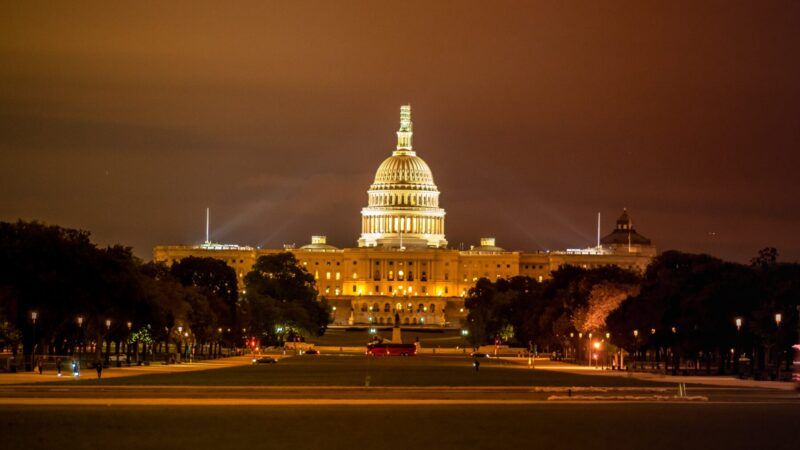CBO: Biden's 'Build Back Better' Plan Will Add $367 Billion to the Deficit
The Congressional Budget Office's analysis of the bill is unlikely to prevent its passage through the House. A vote could happen later tonight.

For months, the White House has been promising that President Joe Biden's massive social spending package would be fully paid for—that is, that tax increases and other revenue-generating aspects of the "Build Back Better" plan would fully offset the nearly $1.7 trillion in proposed new spending.
We now know that's not true.
Biden's plan will add $367 billion to the budget deficit over 10 years, according to an analysis released Thursday by the Congressional Budget Office (CBO), Congress's nonpartisan number-crunching agency.
That figure comes with two big caveats: one that could increase the bill's impact on the budget deficit, and one that could reduce it.
Most importantly, the $367 billion figure could be significantly higher if not for a series of gimmicks written into the proposal intended to game the CBO's scoring system. As Reason has previously covered, several key components of the plan are technically being implemented on a temporary basis, even though it is obvious that Congress will eventually make them permanent. Those arbitrary sunsets and temporary extensions help to hide future costs since the CBO cannot forecast costs over 10 years for programs that are technically only supposed to operate for a year or two.
Even with those gimmicks, and despite provisions that would raise taxes by more than $1.2 trillion, the overall package falls short of Biden's promise not to add to the deficit.
The second caveat has to do with the part of the proposal that would beef up IRS enforcement in order to collect taxes that are owed but not paid. The White House argues that $80 billion in additional funding for the IRS will generate $400 billion in new revenue over the next 10 years—enough to fill the hole that the CBO projects the bill will create. The inclusion of that additional revenue will "make it clear that Build Back Better is fully paid for," Treasury Secretary Janet Yellen said in a statement on Thursday evening after the CBO analysis was released.
This is almost certainly bullshit. The CBO's own, separate assessment of the component of the bill that deals with beefed-up IRS enforcement projects just $207 billion in new revenue as a result of the tax crackdown. It's also worth keeping in mind that other, similar attempts at closing the so-called tax gap have fallen well short of expectations, as Reason's Matt Welch has previously explained.
Even if you include that extra $207 billion in new revenue, the CBO's final assessment means the bill would add about $160 billion to the deficit—and that's before extensions of those temporary provisions, which could double the overall cost of the package, according to the Committee for a Responsible Federal Budget.
In the short term, that may make little difference. Speaker of the House Nancy Pelosi (D–Calif.) told reporters on Thursday that the House would vote on the bill later tonight, and it is expected to pass.
But the CBO's assessment of the bill likely further complicates the "Build Back Better" plan's already murky chances in the Senate, where at least two Democrats have cited concern about the federal deficit as being part of their opposition to the spending package.
The long-awaited CBO analysis of the "Build Back Better" plan isn't the last word in this debate, but it makes clear that Biden's spending plan will increase the deficit—despite the fact that Democrats have tried to put their thumbs all over the scale.


Show Comments (83)